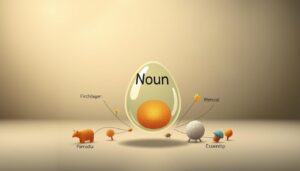Present Indefinite Tense (साधारण वर्तमान काल)
यह काल कब प्रयोग होता है?
- आदतें या रोज़ाना होने वाले काम
- जैसे: वह हर दिन स्कूल जाता है। (He goes to school every day.)
- जैसे: मैं दूध पीता हूँ। (I drink milk.)
- सच या सामान्य तथ्य
- जैसे: सूरज पूर्व में उगता है। (The sun rises in the east.)
- जैसे: बिल्लियाँ दूध पसंद करती हैं। (Cats like milk.)
- स्थायी स्थितियाँ या स्थायी सच
- जैसे: मैं दिल्ली में रहता हूँ। (I live in Delhi.)
- जैसे: वह डॉक्टर है। (He is a doctor.)
व्याकरण संरचना (Grammar Structure)
✅ साधारण वाक्य (Affirmative Sentences)
- Subject + Verb (V1) / Verb + s/es (He, She, It, या एकवचन)
- उदाहरण: मैं खेलता हूँ। (I play.) / वह खेलता है। (He plays.)
❌ नकारात्मक वाक्य (Negative Sentences)
- Subject + Do/Does + Not + Verb (V1)
- उदाहरण: मैं नहीं खेलता। (I do not play.) / वह नहीं खेलता। (He does not play.)
❓ प्रश्नवाचक वाक्य (Interrogative Sentences)
- Do/Does + Subject + Verb (V1)?
- उदाहरण: क्या तुम खेलते हो? (Do you play?) / क्या वह खेलता है? (Does he play?)
Exercise 1: Fill in the Blanks (रिक्त स्थान भरो)
नीचे दिए गए वाक्यों में सही क्रिया (verb) का प्रयोग करो।
- वह हर शाम पियानो _______। (play)
- वह हर शाम पियानो बजाती है। (She plays piano every evening.)
- हम बस से स्कूल _______। (go)
- हम बस से स्कूल जाते हैं। (We go to school by bus.)
- मेरे पिताजी हर सुबह अखबार _______। (read)
- मेरे पिताजी हर सुबह अखबार पढ़ते हैं। (My father reads the newspaper every morning.)
- कुत्ता रात में जोर से _______। (bark)
- कुत्ता रात में जोर से भौंकता है। (The dog barks loudly at night.)
- वे रविवार को अपने दादा-दादी से _______। (visit)
- वे रविवार को अपने दादा–दादी से मिलते हैं। (They visit their grandparents on Sundays.)
Exercise 2: Negative Sentences (नकारात्मक वाक्य बनाओ)
- He eats breakfast at 7 AM.
- वह सुबह 7 बजे नाश्ता नहीं करता। (He does not eat breakfast at 7 AM.)
- They play football in the park.
- वे पार्क में फुटबॉल नहीं खेलते। (They do not play football in the park.)
- She watches TV in the evening.
- वह शाम को टीवी नहीं देखती। (She does not watch TV in the evening.)
- We go to the zoo on weekends.
- हम सप्ताहांत में चिड़ियाघर नहीं जाते। (We do not go to the zoo on weekends.)
- The cat drinks milk.
- बिल्ली दूध नहीं पीती। (The cat does not drink milk.)
Exercise 3: Interrogative Sentences (प्रश्नवाचक वाक्य बनाओ)
- You like ice cream.
- क्या तुम आइसक्रीम पसंद करते हो? (Do you like ice cream?)
- She sings beautifully.
- क्या वह सुन्दर गाती है? (Does she sing beautifully?)
- They study English.
- क्या वे अंग्रेजी पढ़ते हैं? (Do they study English?)
- The train arrives at 5 PM.
- क्या ट्रेन शाम 5 बजे आती है? (Does the train arrive at 5 PM?)
- He rides a bicycle.
- क्या वह साइकिल चलाता है? (Does he ride a bicycle?)
The Present Indefinite Tense (also known as the Simple Present Tense) is used to describe:
- Habitual Actions or Daily Routines
- Example: He plays cricket every Sunday.
- Example: She wakes up early in the morning.
- Universal Truths or General Facts
- Example: The sun rises in the east.
- Example: Water boils at 100°C.
- Permanent Situations or States
- Example: She lives in Mumbai.
- Example: They work in a bank.
- Scheduled Events (especially for future events)
- Example: The train leaves at 6 PM.
- Example: The school opens next week.
Structure
- Affirmative Sentences
- Subject + Base form of verb (V1) / Verb+s/es (for he, she, it, singular nouns) + Object.
- Example: I play football. / He plays football.
- Negative Sentences
- Subject + Do/Does + Not + Base form of verb + Object.
- Example: I do not (don’t) like coffee. / He does not (doesn’t) like coffee.
- Interrogative Sentences
- Do/Does + Subject + Base form of verb + Object?
Example: Do you play cricket? / Does she play cricket







































































Post Comment